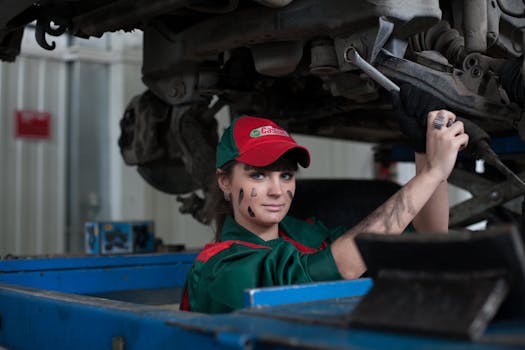
Essential Safety Tips for Working in an Automotive Workshop
Takeaways: Ensuring safety in an automotive workshop is crucial for maintaining a secure working environment. Proper training, the use of safety gear, and adherence to safety protocols can prevent accidents and injuries. Always be aware of your surroundings and the tools you are using.
Working in an automotive workshop can be both exciting and challenging. Mechanics and automotive technicians deal with a variety of tools and machinery to repair and maintain vehicles. However, this environment can also pose risks if proper safety measures are not taken. In this article, we will discuss essential safety tips that every automotive professional should follow to ensure a safe and productive work environment.
1. Wear Personal Protective Equipment (PPE)

- Safety glasses: Protect your eyes from flying debris, chemicals, and other hazards.
- Gloves: Use appropriate gloves to protect your hands from sharp objects, chemicals, and heat.
- Steel-toed boots: These provide essential protection for your feet from heavy tools and equipment.
- Ear protection: Use earplugs or earmuffs if you are working in a noisy environment.
- Respirators: If you are working with hazardous materials, ensure you have a proper respirator.
By wearing the right PPE, you can significantly reduce the risk of injury while performing your tasks.
2. Keep the Workspace Organized
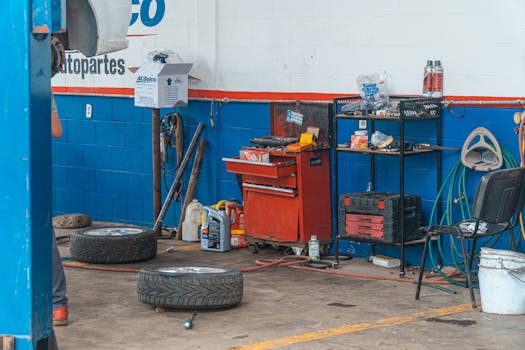
- Store tools properly: Make sure all tools are stored in designated places when not in use.
- Clean spills immediately: If you spill oil or any other fluids, clean them up right away to prevent slips.
- Label hazardous materials: Clearly label chemicals and hazardous materials to avoid confusion and accidents.
- Maintain clear pathways: Ensure that all walkways are free of obstacles to prevent trips and falls.
By maintaining an organized workspace, you can not only enhance safety but also improve efficiency in your work.
3. Understand and Use Tools Properly
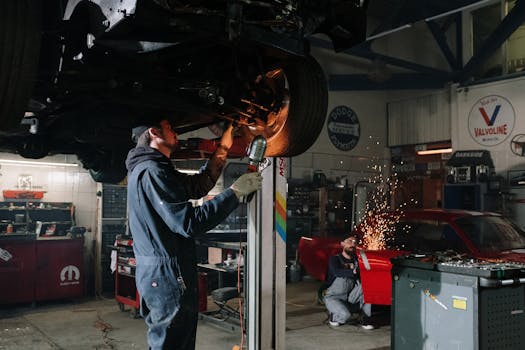
- Read the manual: Always read the user manual before operating any new equipment or tools.
- Inspect tools regularly: Check tools for wear and tear before use and replace any damaged tools.
- Use the right tool for the job: Avoid improvising with tools that are not designed for specific tasks.
- Keep tools clean: Regularly clean and maintain your tools to keep them in good working condition.
Proper tool usage and maintenance can prevent accidents and prolong the life of your tools.
4. Be Aware of Your Surroundings
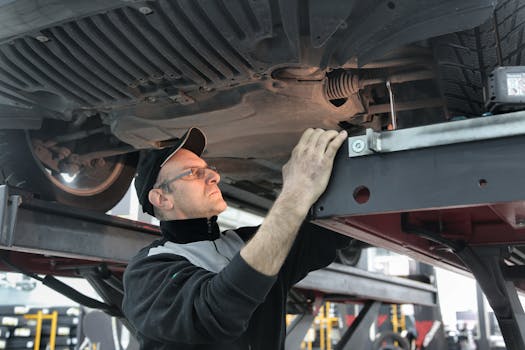
- Communicate with coworkers: Always inform your colleagues about what you are doing, especially when using heavy equipment.
- Watch for moving vehicles: Be cautious when walking around the workshop, as vehicles may be in motion.
- Stay focused: Avoid distractions while working, as they can lead to mistakes and accidents.
- Report hazards: If you notice safety hazards, report them immediately to prevent accidents.
Being aware of your surroundings can help you react quickly to potential dangers.
5. Regularly Train and Educate Staff
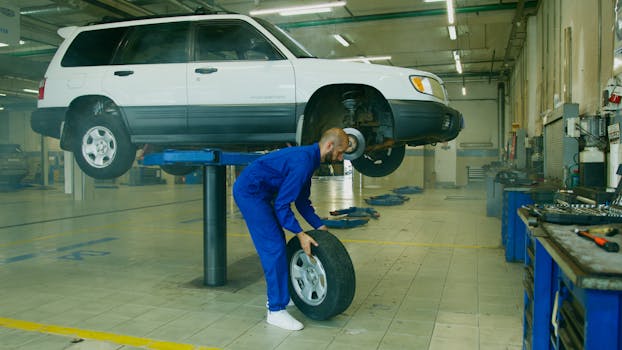
- Conduct regular safety meetings: Discuss safety issues and improvements regularly with your team.
- Offer training sessions: Provide training on new tools, equipment, and safety protocols.
- Encourage a safety culture: Foster an environment where safety is prioritized and employees feel empowered to voice concerns.
By investing in training and education, you can create a safer workplace and reduce the likelihood of accidents.
Conclusion
Working in an automotive workshop can be a fulfilling career, but it is essential to prioritize safety at all times. By following these safety tips—wearing the right personal protective equipment, keeping your workspace organized, using tools correctly, being aware of your surroundings, and regularly training staff—you can create a safer working environment for yourself and your colleagues. Remember, safety is not just a protocol; it’s a culture that should be embraced by everyone in the automotive industry.







